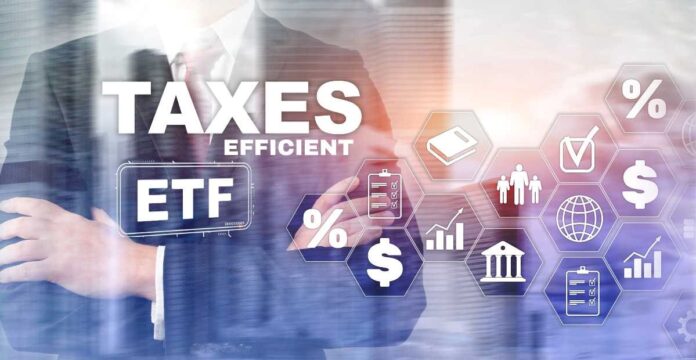Exchange-Traded Funds (ETFs) have gained immense popularity among investors due to their tax efficiency, which makes them a superior choice compared to traditional mutual funds. The unique structure of ETFs allows investors to benefit from lower capital gains taxes, making them a preferred investment vehicle.
How ETFs Minimize Capital Gains Taxes

One of the primary reasons why ETFs are more tax-efficient than mutual funds is their creation and redemption mechanism. Unlike mutual funds, where shares are bought and sold directly with the fund, ETFs use an in-kind exchange process, reducing taxable events. This process involves authorized participants (APs) who create and redeem ETF shares in large blocks, known as creation units, without triggering capital gains for the individual investor.
Comparing ETFs and Mutual Funds on Taxation
• Mutual Funds: When an investor redeems shares in a mutual fund, the fund manager might have to sell underlying assets, creating capital gains that are distributed to all shareholders.
• ETFs: Due to the in-kind redemption process, ETFs rarely have to sell securities, thereby minimizing capital gains distributions.
This structural advantage makes ETFs an ideal choice for long-term investors looking to optimize tax efficiency while growing their portfolios.
The Role of Passive Management in Tax Efficiency
Most ETFs are passively managed, tracking an index rather than actively trading securities. This means:
• Lower portfolio turnover, leading to fewer taxable events.
• Lower trading frequency, reducing transaction costs and capital gains distributions.
In contrast, actively managed mutual funds frequently buy and sell securities, leading to higher capital gains distributions that investors are required to pay taxes on, even if they haven’t sold their shares.
Tax Implications of ETF Distributions
While ETFs are generally tax-efficient, investors should still be aware of certain tax implications:
• Dividends: ETFs that hold dividend-paying stocks distribute dividends to shareholders, which are taxed based on whether they are qualified or non-qualified dividends.
• Long-Term vs. Short-Term Gains: If an ETF does distribute capital gains, they are taxed as either short-term or long-term, depending on the holding period.
Investors looking to maximize tax efficiency should consider ETFs that focus on low-dividend and tax-efficient strategies, such as growth-oriented ETFs.
The Tax Advantages of ETFs in Retirement Accounts
Investing in ETFs within tax-advantaged accounts like IRAs and 401(k)s further enhances their benefits. Since capital gains and dividends inside these accounts are not taxed annually, investors can compound their returns without immediate tax consequences.
Choosing the Right ETFs for Tax Efficiency
To maximize the tax benefits of ETFs, consider the following:
• Broad-Market Index ETFs: These ETFs, such as S&P 500 ETFs, have low turnover and fewer taxable events.
• Municipal Bond ETFs: These ETFs offer tax-free income, making them attractive for high-income investors.
• International ETFs with Tax Treaties: Certain international ETFs benefit from tax treaties that reduce withholding taxes on dividends.
Final Thoughts
ETFs provide a significant advantage over mutual funds in terms of tax efficiency, portfolio turnover, and cost-effectiveness. Investors looking for a tax-efficient investment vehicle should strongly consider low-cost, passively managed ETFs to reduce their tax burden and maximize after-tax returns.

A writer, editor, and publisher with a knack for crafting informative articles.

